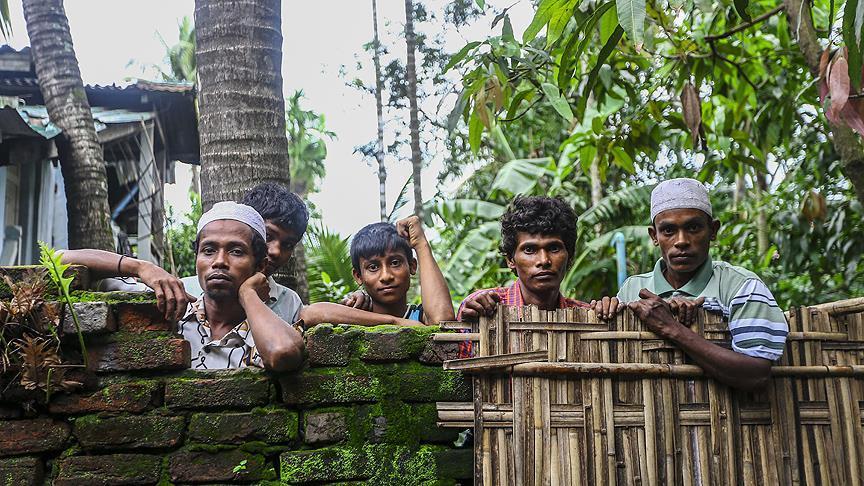Myanmar gov't asked to step in to stop non-Muslim force
Fortify Rights says move by Rakhine regional gov't to set up force to protect people from insurgents 'highly inadvisable'

Myanmar
By Kyaw Ye Lynn
YANGON, Myanmar
A Bangkok-based human rights group is calling on the Myanmar government to "immediately" intervene in a regional government's plan to arm non-Muslim civilians in a predominantly Muslim area of northern Rakhine State.
In a statement released Saturday, Matthew Smith, chief executive officer at Fortify Rights, called the move "highly inadvisable and dangerous".
“If the government wants to improve security, it should take urgent action to protect members of all races and religions and immediately provide free and unfettered access to aid groups.”
On Thursday, a spokesman for the Rakhine regional government told Anadolu Agency that police are planning to train non-Muslim civilians as “regional police” in Maungdaw Township near the Bangladesh border.
“We have started recruiting regional police in the area,” Min Aung said. “After a four-month training period, they will serve."
The area has been under a military lockdown since an armed gang killed nine police officers and stole dozens of weapons and thousands of rounds of ammunition in attacks on border police outposts on Oct. 9.
Min Aung said that around 100 men aged 18 to 30 years old had enrolled for the first batch of training in Rakhine capital Sittwe, and when trained they would be armed as are regular police, and would serve under the command of the Border Guard Police Forces.
Smith underlined Saturday that in 2013, then president Thein Sein had unilaterally disbanded NaSaKa -- a controversial security force in Rakhine that included police, military, customs, and immigration personnel.
It said that Thein Sein’s disbanding of NaSaKa demonstrated that the central government has the authority to intervene with respect to security forces in Rakhine.
"This should be instructive for the current civilian government at this critical time," Smith stated.
The state is home to around 1.2 million Rohingya, who have long been officially labeled as “Bengali” -- a term suggesting they are illegal immigrants from neighboring Bangladesh -- and denied citizenship.
In 2012, violence between the local Buddhist and Muslim communities in Rakhine -- one of the poorest regions in Myanmar -- left around 57 Muslims and 31 Buddhists dead, some 100,000 people displaced in camps and more than 2,500 houses burned -- most of which belonged to Rohingya.
Since the Oct. 9.attacks on border police stations, Fortify said it had received eyewitness reports of extrajudicial killings of unarmed Rohingya men in Maungdaw by the army.
"Numerous reports subsequently alleged that Myanmar Army soldiers and security forces raped women and girls, killed unarmed civilians, and carried out arbitrary arrests and detentions," it said, adding that several Rohingya villages were razed.
On Oct. 24, five United Nations Special Rapporteurs issued a joint statement urging the government to “address the growing reports of human rights violations in northern Rakhine".
The president's office, however, repeatedly denied all allegations of abuses or wrongdoing, dismissing allegations as false propaganda.
Top diplomats and a UN official returning from Rakhine have since called for a credible probe into last month's fatal attacks, along with the allegations that soldiers killed and raped.
The UN Special Rapporteur has underlined that a major problem in ascertaining the true picture has been the lack of access for a proper assessment.
"The blanket security operations have restricted access for humanitarian actors with concerning consequences for communities’ ability to secure food and conduct livelihood activities.”
In Saturday's statement, Smith called the arming of civilians on ethnic and religious identity in such a racially-charged context "profoundly irresponsible".
“We fully expect the government to put a stop to this plan and to immediately provide aid groups with free and unfettered access to all in need. The best way to prevent violent extremism is to promote and protect human rights, not equip people to potentially commit abuses.”
Anadolu Agency website contains only a portion of the news stories offered to subscribers in the AA News Broadcasting System (HAS), and in summarized form. Please contact us for subscription options.






